Search Results for: Vertebrates
Skip to resultsCan’t find what you’re looking for? Visit our FAQ page.
1,539 results for: Vertebrates
-
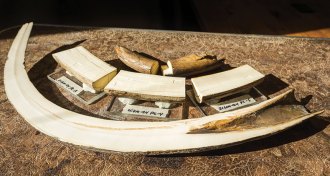 Paleontology
PaleontologyNew evidence weakens case against climate in woolly mammoths’ death
Hunters responsible for woolly mammoths’ extinction, suggests a chemical analysis of juveniles’ tusks.
By Meghan Rosen -
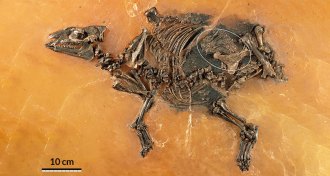 Animals
AnimalsOldest pregnant horselike fossil found
A 48-million-year-old fossil of an early horse and fetus is the oldest and best-preserved specimen of its kind.
-
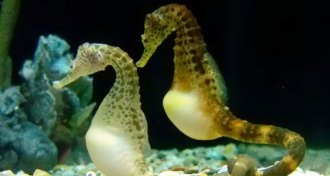 Animals
AnimalsHow a seahorse dad is like a pregnant woman
Live birth has evolved at least 150 times in vertebrates, including in seahorses and humans. And there are some surprising similarities between the species.
-
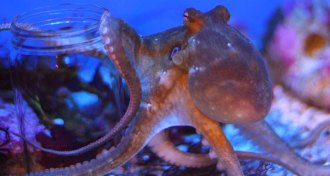 Genetics
GeneticsHow an octopus’s cleverness may have evolved
Scientists have sequenced the octopus genome, revealing molecular similarities to mammals.
-
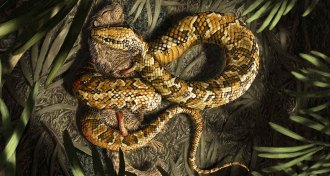 Paleontology
PaleontologyMuseum fossil links snakes to lizards
Scientists have discovered the fossilized remains of the first four-legged snake. The fossil bridges the gap between snakes and lizards.
By Meghan Rosen -
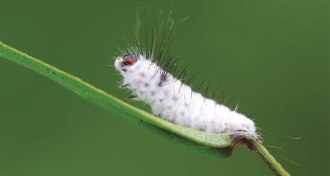 Life
LifeA downy killer wages chemical warfare
The common fungus Beauveria bassiana makes white downy corpses of its victims.
By Beth Mole -
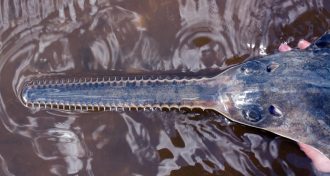 Animals
Animals‘Virgin births’ won’t save endangered sawfish
Sawfish are the first wild vertebrates found to reproduce via parthenogenesis.
-
 Paleontology
PaleontologyThis dinosaur’s ride may have been a glide
A new dino called Yi qi may have taken to the skies with wings akin to those of pterosaurs and flying squirrels.
-
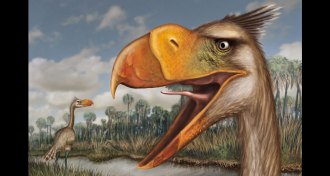 Paleontology
PaleontologyFossil reveals terror bird’s power
Bones of a new terror bird confirm the creatures used their beaks to hatchet their prey but also raise questions about what drove the birds extinct.
-
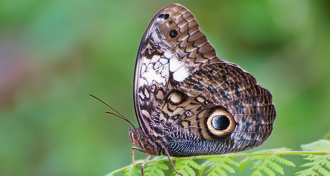 Life
LifeIt’s true: Butterfly spots can mimic scary eyes
Contrary to recent studies, the old notion that butterfly wing eyespots evoke predator eyes may not be so old-fashioned after all.
By Susan Milius -
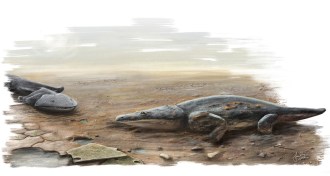 Paleontology
PaleontologyFossil of monstrous fish-eating amphibian unearthed
A new Triassic species of giant amphibian lived like a crocodile instead of like its cute little salamander and frog relatives of today.
By Susan Milius -
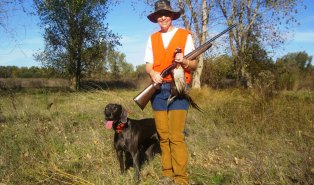 Animals
AnimalsConservationists should make friends with hunters
A survey of outdoor enthusiasts in rural New York finds that both hunters and birdwatchers are likely to engage in conservation behaviors, such as donating money.